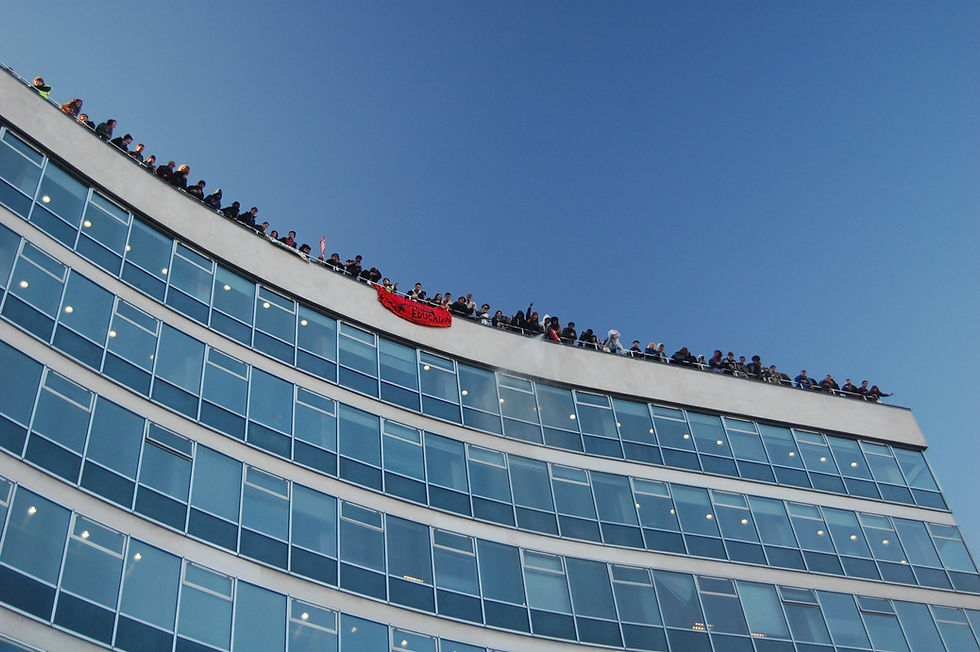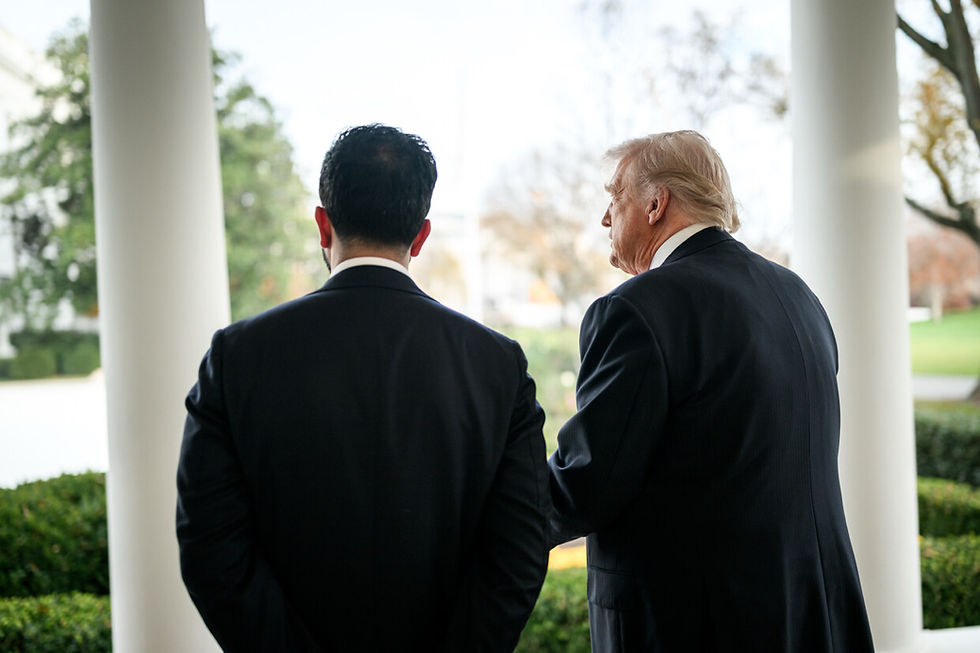A Very Centrist Triumph - Hollow Victory in the Netherlands
- Abhay Venkitaraman

- Nov 3, 2025
- 4 min read
Updated: Nov 10, 2025

In a result that few expected, the centrist-liberal D66 has won a plurality of seats in this year’s Dutch elections, narrowly fending off the far-right PVV. Many publications internationally have hailed the results as a victory for the centre ground and, correspondingly, a defeat for the far-right. Delve closer into the results and the broader Dutch political context, however, and this analysis seems dubious.
The snap vote follows elections held in 2023, which the PVV won following a last-minute polling surge. Led by its founder, the notorious Geert Wilders, the party has a longstanding history of taking hardline stances on Islam, immigration, and the European Union – like many of its far-right counterparts. Some of these, such as a ban on Muslim religious expression, violate the Dutch constitution.
Following its 2023 victory, the PVV formed a coalition with three separate right-wing parties: the VVD, BBB, and NSC. However, at the behest of its coalition partners, the PVV was unable to nominate Wilders as Prime Minister, with the position going to former spy chief Dick Schoof instead. The government was replete with infighting and gridlock, with the PVV failing to fulfil its promises to implement a more right-wing immigration policy and address the Netherlands’ chronic housing shortage. Earlier this year, the party proposed a radical ten-point plan to reform asylum policy, including proposals such as a freeze on asylum applications. This met with opposition from its coalition partners, leading to the PVV’s withdrawal from the government and a snap election.
The PVV’s decision was lambasted across the Dutch political spectrum. Notably, the VVD explicitly ruled out a coalition with the PVV after the election was called, but only because of the latter’s “irresponsible” behaviour rather than its racist and anti-constitutional ideology.
Ultimately, the PVV collapsed from 37 to 26 seats, with D66 surpassing it by a few thousand votes. D66 is undeniably in pole position to form a government, helmed by its leader Rob Jetten. But does this really signify a triumph for “[liberal] optimism over anti-immigrant populism”, as The Economist put it?
Well, not really.
Firstly, the PVV’s poor result reflects a fragmentation of the far-right rather than its decline. Whilst the party did lose 11 seats, this happened alongside significant gains by other far-right parties. Most notably, JA21, which one analyst has described as a “PVV-light party with equally undemocratic ideas”, surged from 1 to 9 seats. Sarah de Lange, a professor of Dutch politics at Leiden University, has noted that “the far-right bloc remains remarkably stable”; cumulatively, far-right parties won 42 out of 150 seats – compared to 41 in 2023.
Moreover, the election was contested in an environment where political discourse has veered to the right. Like in many other Western countries, mainstream Dutch parties have responded to the right of the far-right through a strategy of accommodation – shifting their policies and rhetoric rightwards to coax voters back towards themselves. However, political-scientific research suggests this strategy tends to be counterproductive, acting to normalise the far-right and raise the salience of issues, like migration, where it has the political high ground.
A recent paper highlights that this is precisely what happened during the 2023 election. The VVD, then the largest party in government, shifted rightwards on immigration and emphasised it as a core part of its platform. Its manifesto argued that the Netherlands had been overwhelmed by “unchecked immigration”, proposing a dramatic tightening of immigration restrictions. Importantly, the VVD also effectively ended the ‘cordon sanitaire’ surrounding the far-right, suggesting that it would be open to forming a government with the PVV – a departure from its prior position. These shifts backfired, fuelling the PVV’s polling surge and ultimate victory.
Rather than learning from this experience, mainstream Dutch parties doubled down on far-right accommodation during the 2025 election campaign. As the political scientist Cas Mudde has pointed out, the centre-left Green-Labour alliance (GL/PvdA), shifted their immigration policy rightwards, arguing the Netherlands faced a “refugee problem”. Notably, even the traditionally liberal D66 did so, with Jetten invoking conservative-coded rhetoric by arguing that Dutch policy must “shift from migration that happens to us, to migration we control”. During the campaign, he even went so far as to leave the door open to governing with JA21 – a far cry from any kind of cordon sanitaire.
This is not to say that mainstream parties have entirely adopted the language of the far-right. D66’s programme stands miles apart from that of the PVV, with the latter’s including overtly racist policies such as revocation of asylum status for all Syrian refugees.
That being said, it is clear that far-right parties and discourse still hold immense sway in Dutch politics. Past experience, both internationally and within the Netherlands, highlights that to defeat the far-right, mainstream political forces must challenge not just the politicians and parties that comprise it, but also the underlying ideas that animate it.
Clearly, there is little prospect of this occurring in Dutch politics thus far. Moreover, D66’s vote share – a tad under 17% – is tiny, by historical standards, for the largest party in a Dutch election. This reflects an immense fragmentation of Dutch party politics, making the formation of a stable government very unlikely.
Given these circumstances, the supposed ‘victory’ of the liberal centre seems hollow indeed.
Illustrations: WIll Allen/Europinion
.png)



Comments